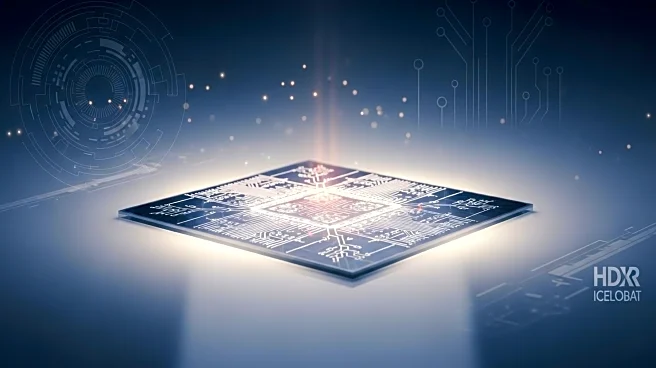What is the story about?
What's Happening?
Nvidia has announced a $5 billion investment in Intel, marking a significant collaboration between the two semiconductor giants. This partnership aims to develop advanced chips for computers and data centers, leveraging Intel's manufacturing capabilities and Nvidia's expertise in AI and accelerated computing. Intel's shares surged by 23% following the announcement, reflecting investor confidence in the collaboration. Nvidia's investment comes shortly after Intel agreed to a deal granting the U.S. government a 10% stake in the company, highlighting the strategic importance of Intel in national semiconductor production.
Why It's Important?
The collaboration between Nvidia and Intel is poised to have a substantial impact on the semiconductor industry, particularly in the U.S. As both companies aim to enhance their technological capabilities, this partnership could lead to advancements in AI infrastructure and computing platforms. The investment underscores the importance of domestic semiconductor production, especially as the U.S. government seeks to bolster its technological leadership. This move may also influence market dynamics, potentially benefiting other companies in the semiconductor supply chain.
What's Next?
The partnership is expected to lead to the development of custom data-center chips and PC chips integrating Nvidia's RTX GPU chiplets. As the companies work together, they may face challenges related to technological integration and market competition. Stakeholders, including the U.S. government, will likely monitor the progress closely, given the strategic implications for national technology capabilities. The collaboration could also prompt other semiconductor firms to explore similar partnerships to enhance their competitive edge.
Beyond the Headlines
This collaboration highlights the growing trend of strategic partnerships in the tech industry, where companies leverage each other's strengths to drive innovation. The involvement of the U.S. government in Intel's operations reflects broader geopolitical considerations, as nations seek to secure their technological infrastructure. The partnership may also influence global semiconductor supply chains, potentially affecting international trade dynamics.















